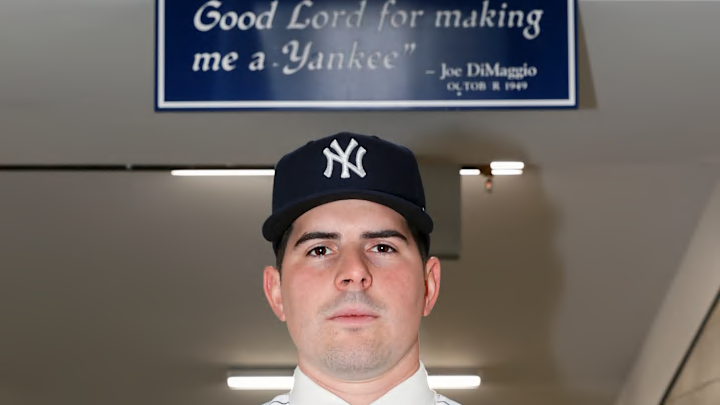Mike Lupica recently wrote a piece for Yankees.com entitledYankees Rotation deserves as much hype as lineup. Specifically, Lupica argues that the promised 2023 Yankees’ rotation is the team’s best since 2003. That year, the Yankees' rotation featured the quartet of Roger Clemens, Mike Mussina, Andy Pettitte and David Wells.
Part of me shares Lupica’s optimism. Gerrit Cole, Nestor Cortes Jr., Luis Severino, and new signing Carlos Rodón have all had their moments of stardom, to say the least. In theory, Rodón is a very exciting acquisition. In 2022, he put up a 2.64 ERA and led Major League Baseball with a strikeout rate of 11.98 per 9 innings.
I have no doubt the Yankees did their due diligence on Rodón before signing him, and Rodón’s 2022 was truly impeccable. Both his FIP (Fielding Independent ERA) and xFIP (Expected Fielding Independent ERA) were below 3.00. He gave up only 0.61 HR/9 innings, and the home runs that he did allow went to left field (suggesting he won’t be victimized by Yankee Stadium’s short porch).
But if you allow me to forgot the metrics, and share some folk wisdom, there’s still a part of me that struggles to get excited about Rodón in the same way that I got excited about the marquee acquisitions of my younger years: players like Mike Mussina, Jason Giambi, Alex Rodriguez, Bobby Abreu, and CC Sabathia. All of those players were well-established stars when they became Yankees. Rodón, however, is coming off just his second good season.
Talent is a fleeting thing. And a well-timed flourish in performance can lead to a player being mis-identified as a must-acquire superstar when they hit free agency.
Think of it this way. Plenty of players will put up an All-Star season. Perhaps they will put up two or three. But once that peak ends, they can flame out rather than sticking around for a solid, thorough career.
Carlos Rodón had his first successful season in 2021 when he put up 5.1 (Baseball Reference) WAR. He improved that total to 5.4 in 2022. That's nothing to scoff at, but does it prove he can be counted on over the course of his Yankees contract?
One way to answer this question is by asking what constitutes a successful major league career. Perhaps we could set the benchmark at 40 career WAR. A 40-WAR player is by no means a Hall of Famer, but rather a solid, long-term contributor (Brett Gardner, for example, has a career WAR of 44.3).
Can a pitcher who has put up two 5-WAR seasons be counted on to put up a 40-WAR career? Not really. 82 pitchers in MLB history have career WARs of 40 or better. Only five of them got to that career total with only two 5-WAR seasons. 17 got there with three 5.0-WAR seasons. From this perspective, Carlos Rodón's two great years do not prove he can be counted on to be a solid contributor going forward.
Of course, when looking for talent, teams have to engage in a balancing act. You have to weigh the cost of investing in insufficiently established players versus paying players who are so established that they are at risk of regressing with age.
In hindsight, it’s remarkable how experienced, and successful, the 2003 Yankees' rotation was. Roger Clemens began pitching in 1984, David Wells in 1987, Mike Mussina in 1991 and Andy Pettitte (the youngster of the bunch) in 1995. On top of having that experience, they were an exceptionally talented group. By the end of their careers, Clemens, Mussina, Pettitte and Wells had Baseball Reference WARs of 139.2, 82.8, 60.2 and 53.5 respectively.
Perhaps I’m making much ado of nothing. Carlos Rodón has been a great pitcher as of late, and he’s as good an acquisition as the Yankees likely could have made. I suppose my point is just that it often feels like players go through cycles of being unreasonably hyped when newly acquired, only to end up the bane of fans a few months down the road. Carlos Rodón could very well be on his way to a fabulous MLB career. But simple logic should remind us that the odds of a player being a two-year wonder are far higher than the odds of them being a long-term star.
